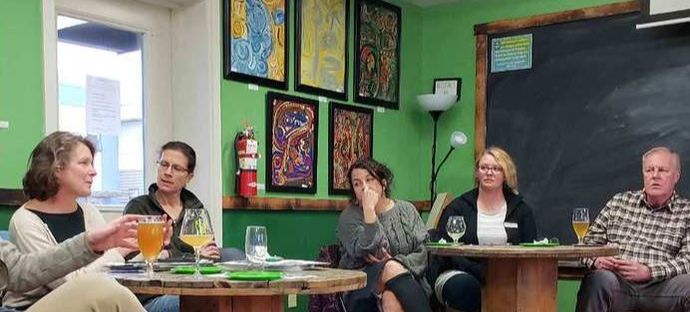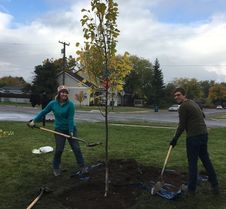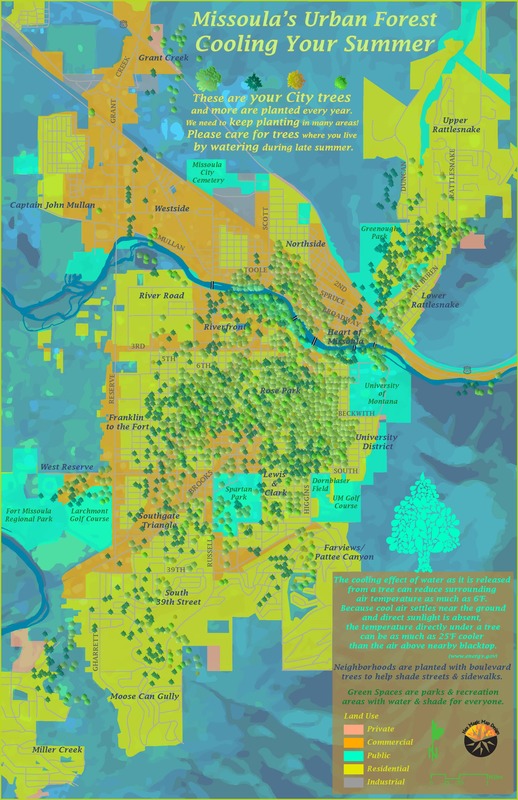|
Plastic is all around us. Take a look down at what you’re wearing. I bet there is plastic in your shoes. Look in your bag, those car keys, plastic. Your cell phone, plastic. The use of plastic seems almost unavoidable, with a society so dependent on a single material. If your interested in the environmental effects of plastic, check out tomorrow's Climate Smart sponsored short film called Defying Plastics at the International Wildlife Film Festival . This 5 minute film is part of a 50 minute "Ocean Block" in which half of the films are about plastics and what we can do, starting at 6:15 at the Roxy Theater.
Itching for tomorrows film block to learn more about plastics and what we can do? Keep reading! A report from The National Center for Biotechnology Information estimates “over 300 million metric tons of plastics are produced in the world annually and about 50% of this volume is for disposable applications, products that are discarded within a year of their purchase.” Plastics cause great harm to humans, animals and our environment. An article from the journal Environmental Health News, titled “The Environmental Toll of Plastics,” reports: “more than 180 species of animals have been documented to ingest plastic debris, including birds, fish, turtles and marine mammals.” Not only are animals affected, humans also pay a huge price. “Humans are exposed to chemicals from plastic multiple times per day through air, dust, water, food and use of consumer products,” Our landfills are full of single use plastics, that could potentially be avoided. The idea of trying to reduce plastic use has been on many cities, states and countries minds for a long time. Globally, governments have taken bold action, banning plastic bags and containers. France recently introduced a ban to take place in 2020 on all plastic cups, plates and cutlery, ensuring that they will only allow ones that are compostable. Taiwan has also banned all plastic bags, straws and utensils. Due to China’s new recycling regulations, many places in Montana are no longer recycling type 1 and 2 plastics, calling even louder for new ideas regarding use reduction. There are so many ways to take action! Businesses in Missoula such as the Top Hat, Wilma and Kettlehouse are taking action as apart of Zero By Fifty - the city wide effort to reduce landfill waste 90 percent by 2050. These businesses have set up requirements that all single use plastics they use are compostable. Plastic consumption is something that consumers do have power in changing. If you are at a restaurant, you can ask for no plastic straw, or bring your own mug to a coffee shop. With a strong community & individual efforts, Missoula is taking action and leading in reducing plastic waste. Again, don't forget to check out Climate Smarts sponsored short film "Defying Plastics" and get inspired for further action to reduce plastic use ! - Sydney Lang, CCS Intern
0 Comments
 Let’s say you walk into a large Missoula park on a boiling hot summer day. You're hoping to have a picnic and are looking for some shade. You spy a large oak tree on the corner, casting a huge net of relife. You set up your blanket and enjoy a cool picnic in the shade. Can you imagine what your picnic would have been like without the surrounding trees? Trees provide so many benefits, cooling us off in the summer and providing a windbreak in the winter. They're invaluable to our water systems and air quality. Climate Smart Missoula's April monthly meetup was all about the importance of trees in our city, neighborhoods, and surrounding wildland forests. Dave Atkins came to speak about TreeSource, a new-ish website that "includes original stories, photo essays, videos and podcasts that take readers into North America’s forests and the cities that rely upon them for everything from drinking water and building materials to carbon storage, renewable energy, recreation and biodiversity.” Do check TreeSource out for the latest in forest journalism. Dave began by talking about the concept of biophilia. Like most in attendance, I’d never heard this term before. Biophilia is defined as “the recognition that human beings are wired towards nature.” Scientific studies have shown that humans work better while surrounded in nature or natural materials, such as wood buildings. Stress levels are brought down and productivity is proven to be significantly higher. More here. This rings true for me. As a student at UM, I've noticed the buildings at the University where I get the most work done are naturally lit with views of trees, rather than under the dim glow of the basement library lights. When I work near or outside my stress level decreases, creating a space where I can produce my best work. Back to the meetup. Representatives from the City of Missoula's Urban Forestry Division and Trees For Missoula spoke about the amazing work they do to maintain, enhance, and expand Missoula’s urban forest through pruning, planting and hazard removals. According to Trees for Missoula, the beautiful trees that line our streets, parks and homes were planted 80 years or more ago and most have life spans around 50-100 years, meaning it is essential to plant their replacements now. So how can folks get involved in enhancing and maintaining our urban forests? One important aspect of our urban forests maintenance is the work of volunteers. The Urban Forestry Division is fairly understaffed and currently on a 51 year pruning cycle. I was shocked to learn that for trees to be healthy, they should be on a 10-15 year pruning cycle! Even while understaffed, 400 trees were pruned this winter. Want to shorten the pruning cycle? Check out all the great ways to volunteer for Trees For Missoula here. As they explicitly say “No forestry or technical background is required, only a passion for enhancing and maintaining Missoula's trees". Also, don't forget to register for “Run for Trees” this Saturday, April 14 located at Silver Park, 900 Cregg Lane, Large Pavilion west of The Missoula Osprey's Ogren Park Allegiance Field. While we can volunteer and get involved directly in the maintenance and growth of our urban forest, it's still necessary to educate and advocate to fellow community members about the importance of trees. Many at our meeting spoke to the idea of advocating for a mandate on planting trees or green space in commercial development areas. Trees serve to cool the area, decreasing the Urban Heat Island affect and providing shade especially in the peak of summer. They benefit everyone in the community! Our group agreed that a great way to enhance our urban forest is to help people understand all the benefits of trees and the need to plant and water them. For more, check out this Sustainable Missoula piece Trees for Missoula's Karen Sippy. Finally, Urban and Wildland Forests is a focal area in our community's Climate Smart Action Plan, with strategies and more info here. At this meetup, I learned very quickly that there is a lot more to trees than you may think. They're wonderfully complex parts of our world that do so much good. They store carbon, make us happy and healthy, and create more aesthetically appealing streets. You may not have the time or skills to become a professional arborist, but we can all be advocates for maintaining, enhancing and expanding Missoula’s urban forest! - Sydney Lang, Climate Smart Intern |
AuthorsAbby Huseth Archives
July 2024
Categories
All
|



 RSS Feed
RSS Feed


